#tommy and florence
Explore tagged Tumblr posts
Text
A Repetition of History
Or Tommy finds his school bully at the last palce he expected to see him, Florence’s school entrence dropping off his son, who takes after his father in more than just looks
Cw: racsim, bullying, slurs, violence
No offense to Harolds of the world, i just picked common baby names from 1890
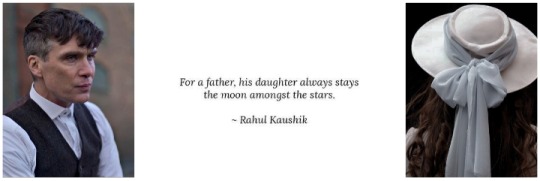
He’s taken his children to school plenty of times. So far, everyone fears his displeasure enough to keep their mouths shut.
Mosely and the growing bigotry these years had caused them plenty of trouble for them and their children so much that they’ve had to enroll them in a different school.
Florence had fewer more issues than Diane since she didn’t inherit the long forgotten Shelby trait of two different colored eyes. And yet his girl was approaching the building as if she were being led to her doom.
He’d only come here so her classmates could learn about what a member of Parliament does before they take a tour of 10 Downing Street that he got for them. While he felt a little bad for using his children’s school to campaign for re-elections, 9 year old Flora loved ruling over the playground enough to suggest the idea in the first place.
“What’s wrong, sweet girl?” he asks quietly, and before she answers, Tommy heard it.
“Didn’t know they let the likes of you into these places?” one of the parents says with that distinct tone that told the reformed gangster this was more than just old money snobbery.
This one was one of the ,unfortunately, many who believed in Fascism and the idea that the white race must exterminate the others.
And unfortunately for everyone involved, a man Tommy knew from before. He used to harass him and his siblings in school when they were younger. He would call Ada things, pull on her braids, he’d hit John, and the reason Tommy learned to use the old pocket knife he had pickpocketed one Sunday morning with his father.
The boy had learned to hate the Romani at his mother’s bosom and now taught it to his children. Especially the little boy with that sinister little smile that made the usually unflappable Florence cry.
“Not everyone shares your views, Harold. Most people believe the children of an elected representative should attend the same schools as the rest of the children in his constituency.” Tommy hardly brags about his career unless the situation merits it, and this one did.
It was only this and Florence that kept him from beating the living shit of his old schoolyard bully.
“I didn’t mean that, Shelby, but I suppose even the Crown lowered its standards to allow dirty gypsies like you into its sacred halls.” Harold said and Tommy knows this won’t end well for anyone.
“The people of Birmingham put me there, if they don’t see anything wrong with a ‘dirty gypsy’ representing them in Parliament, neither should you.” While he was used to being called a gypsy –some just didn’t know any better and still assumed their people came from Egypt--- Tommy couldn’t just let it slide this time.
With those last words and the apologies of Florence’s teacher and several members of the faculty, Tommy does his best to leave even with his fist clenched in anger.
Even words from that fucking cunt were enough to wake the devil in him.
“That’s right, pikey, leave just like your dad did.” Harold laughs, thinking he’s won.
He never sees the fist until Tommy’s recreating that time he and Arthur showed him enough was enough after he pulled Ada’s new dress down in front of the class.
Mrs. Changretta hadn’t stopped them, in fact didn’t stop Angel and Luca from joining in too. After all Harold hated Italians as much as he hated the Romani and the Jews.
The staff can’t get him to stop until he’s stained the cobblestones with blood and the screaming children shake him out of the memories of every single insult has avenged itself through his fists.
“I’m sorry, ma’am, don’t know what came over me.” He apologizes to the headmistresses, but he cannot make himself see the horror in Florence’s face.
She’s scared of him now. Just as he was scared of his father the first time he saw him kill.
Tommy, from then on, decides he won’t take her to school like he used to, but later that evening, Florence sneaks into his office with the desert he’s denied himself.
Even worse, she kisses his cheek as she always does and whispers, “Thank you.”
20 notes
·
View notes
Text

Reader POV Masterlist

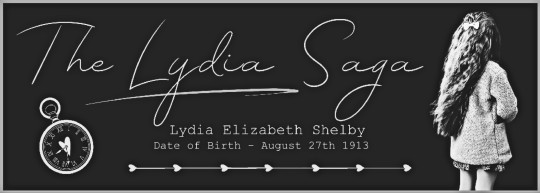
Main Lydia Masterlist
Edits, Drabbles & More

Multi-Chapter Fics.
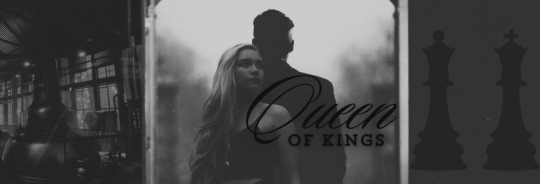
Queen Of Kings - Nellie Ensor never expected to return to Small Heath, but fate had other plans. After her father's brutal murder at the hands of a ruthless gang, Nellie inherits the family business—a prize many would kill for. Torn between selling it off for safety and honouring her father's legacy, Nellie decides to stand her ground. Navigating a world steeped in danger, she finds herself entangled with the notorious Peaky Blinders. As threats loom and loyalties are tested, Nellie must find courage to protect her father's dream and carve out a place for herself in a world where survival is never guaranteed. In the heart of Birmingham, amidst the smoke and shadows, a legacy is about to be reborn.

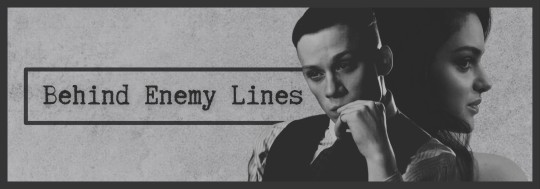
Behind Enemy Lines - Fearless journalist Florence Fletcher is on a mission to expose the Peaky Blinders, but her relentless pursuit pits her against the dangerous and captivating John Shelby. When a greater threat looms, they must join forces, turning enemies into uneasy allies. Amidst the chaos and intrigue, sparks fly and forbidden passion ignites. Can they survive the shadows of Birmingham's underworld and find love, or will their secrets destroy them?
Blurred Lines - Florence Fletcher has always been a thorn in John Shelby's side, but when he finds her drunk and vulnerable on a night out, his protective instincts take over. As he steps in to help her, the hard edges of their contentious relationship start to blur, uncovering unexpected depths and hidden feelings.
[A modern spin-off of Behind Enemy Lines]

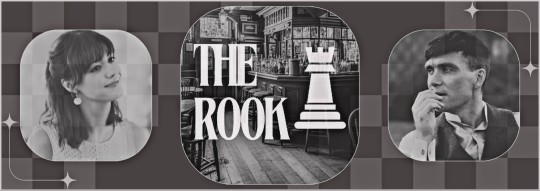
The Rook - Seeking refuge from his turbulent life, Tommy Shelby finds solace in The Rook, a quiet pub on Birmingham's outskirts. There, he meets Rosemary King, a barmaid whose sunny disposition offers him an unexpected sanctuary. Her kindness and warmth begin to thaw his hardened heart, creating a bond that takes the gangster by surprise. But peace is short-lived when Tommy's enemies track him to his hidden refuge, putting both The Rook and Rosemary in jeopardy. As danger looms, they must navigate the threats together, testing the strength of their growing connection. Can Tommy protect his newfound sanctuary, or will his criminal life shatter the fragile peace he's found?

#peaky blinders#peaky blinders fanfiction#peaky blinders oc#tommy shelby#john shelby#arthur shelby#tommy shelby x reader#john shelby x reader#tommy shelby x oc#john shelby x oc#tommy shelby smut#john shelby smut#peaky blinders fic#peaky blinders smut#fanfiction#ao3 fanfic#john shelby fanfic#tommy shelby fanfiction#john shelby x you#tommy shelby x you#ao3 writer#enemies to lovers#slow burn#lydia shelby#florence fletcher#nellie ensor#queen of kings#behind enemy lines#peaky blinders masterlist
304 notes
·
View notes
Text
'When Cillian Murphy took to the podium during Sunday night’s Golden Globes, his nose smudged in his wife’s lipstick, it was as if a door had opened on this Hollywood Neverland and an ambassador for the real world had stepped through.
Accepting the Best Actor in a Drama award for Oppenheimer, Murphy wasn’t so much un-starry as stonkingly everyday. Here was a normal person who had somehow beamed into peak Tinseltown and, if pleased, was also clearly a bit perplexed by it all.
The Oppenheimer win has made Murphy a frontrunner for the Oscars. In all likelihood, he will be up against a creepy Barry Keoghan in Saltburn, an overblown Bradley Cooper in Maestro, and a fervent Leonard DiCaprio in Killers of the Flower Moon. With the arguable exception of the grandstanding Cooper, all would be worthy winners. And yet, underdogs everywhere will be cheering for Murphy. He’s spent the past 20 years negotiating Hollywood on his own terms and has rejected Tinseltown’s showiness in favour of staying grounded and playing the long game.
Murphy always wanted to be an actor rather than a star. Such a choice could easily have condemned him to a lifetime of supporting roles. Or a hiatus in TV, to which he seemed exiled when he settled in for a long run as Tommy Shelby in Birmingham noir Peaky Blinders.
But his decision to turn away from flashy parts has proved inspired. He is that rarest of things: an experienced A-list actor who comes to the Oscars without baggage. Unlike DiCaprio, he hasn’t had to overcome a past life as a teen pin-up. Nor does he have to justify a lucrative stint in comic book films, as Cooper has with his time as Rocket Racoon in Guardians of the Galaxy.
Above all, Murphy goes into Oscar season as an antidote to the “look at me!” culture of the social media era. In an age when fame is regarded as the ultimate commodity – more important than awards or critical acclaim – Murphy would rather let his work speak for itself. He lives humbly in suburban Dublin with his wife and two children – and his great passion outside of acting is music, as demonstrated by his semi-regular presenting slot on BBC 6 Music.
That’s lifetimes removed from Hollywood, with its self-mythologising and turbo-charged fakeness. It is also of a piece with his career since he broke through playing a survivor of the zombie apocalypse in Danny Boyle’s 28 Days Later. Ever since, he has chosen his jobs thoughtfully. In so doing, he has assembled a body of work of which he can be proud.
He hasn’t been above popcorn. He was a memorable villain in Christopher Nolan’s Batman Begins, where he played the Scarecrow as a trippy nightmare. But even when shooting for the box office, Murphy has been studiedly un-starry. Careful to keep his ego in check, he’s often happy in an ensemble – hugging the background in A Quiet Place II and settling for an extended cameo in Nolan’s Dunkirk, where he was content to let Harry Styles and Tom Hardy hog the spotlight.
Hog it they did – yet it was Murphy who proved to be in it for the long road. Because he could go into Oppenheimer without a Hollywood aura, he disappeared into the role. If hardly obscure, he nonetheless assimilated fully into the part. Throughout that film, you were aware of its stars. Florence Pugh and Emily Blunt doing their best with under-written female characters. Robert Downey Jr trying to pretend he hadn’t spent a decade as Iron Man.
Murphy, by contrast, split the acting atom. He vanished into Oppenheimer with a performance that exuded humility and sincerity. Bookies have now installed him as a favourite for the Best Actor Oscar. If he wins, it would be a victory for knowing who you are and what you stand for and believing good work has value beyond short-term acclaim. Above all, his success shows that it is possible to stay grounded while scaling Hollywood’s giddiest heights.'
#Cillian Murphy#Oppenheimer#Oscars#Christopher Nolan#A Quiet Place Part II#Dunkirk#Harry Styles#Tom Hardy#Florence Pugh#Emily Blunt#Robert Downey Jr.#Iron Man#Golden Globes#Barry Keoghan#Saltburn#Bradley Cooper#Maestro#Killers of the Flower Moon#Leonardo DiCaprio#Tommy Shelby#Peaky Blinders#BBC 6 Music#Danny Boyle#28 Days Later#Batman Begins#Scarecrow
152 notes
·
View notes
Text
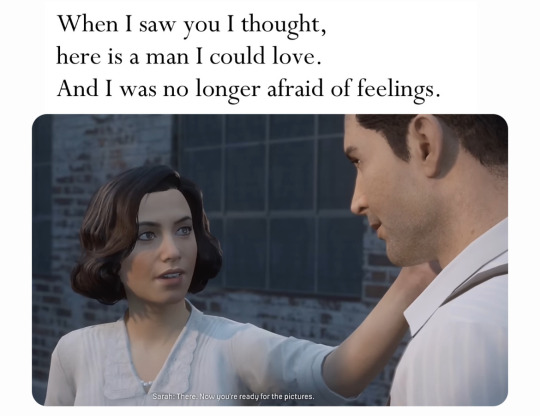
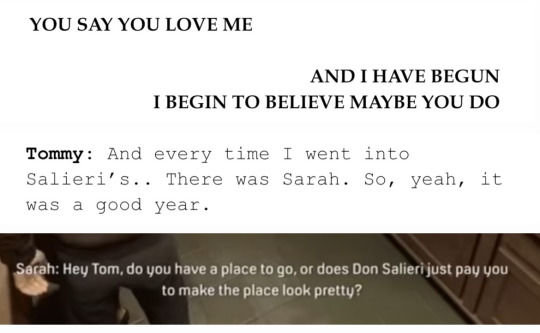
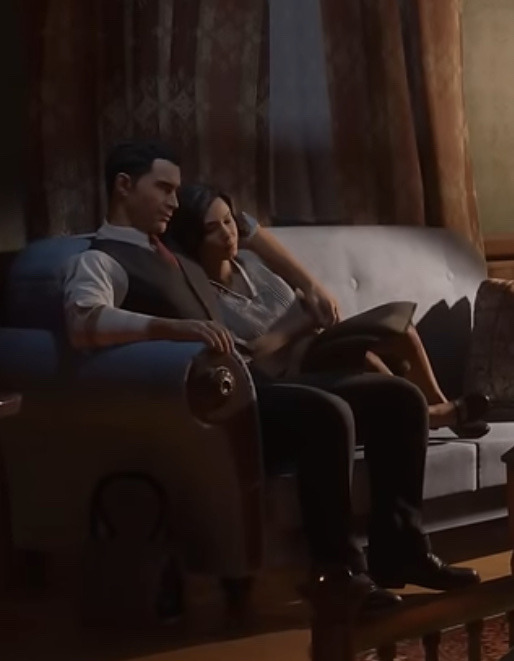
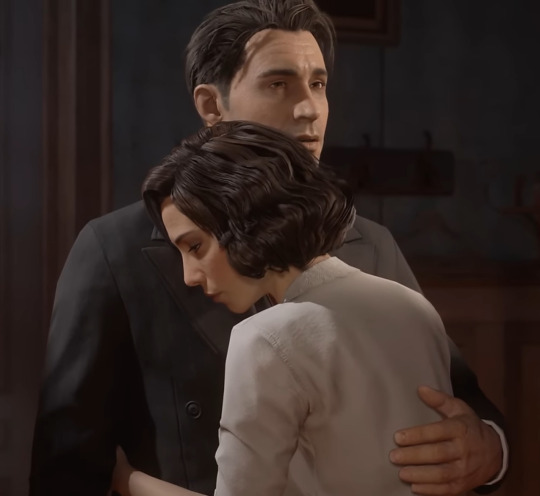

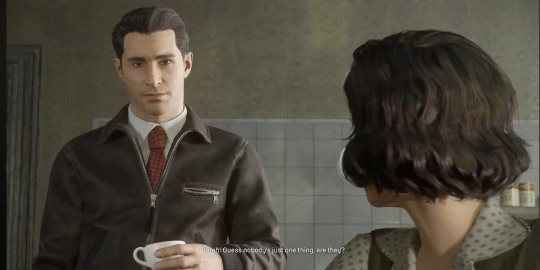
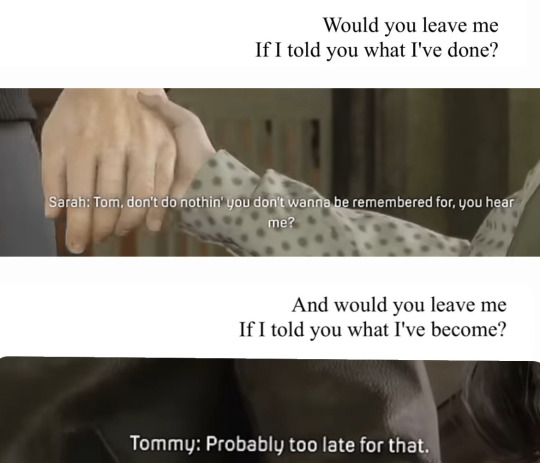

“I’ve been thinkin’..” “Oh yeah? I’ll call the papers.”
a literate passion: letters of anaïs nin & henry miller, 1932-1953 - anaïs nin, mafia: definitive edition (2020), intifada incantation: poem #8 for b.b.L. - june jordan, mafia: definitive edition (2020), tumblr user heavensghost, no light no light - florence + the machine, mafia: definitive edition (2020), a self-portrait in letters - anne sexton
my kofi!
#this is every interaction the two of them have in the game#like there is no more than this. isn’t that crazy. we see sarah like 4 times in this game#and yet . she’s the main character . to me#tommy angelo#sarah angelo#tommy/sarah#mafia: definitive edition#mde#mafia trilogy#word weaves#word web#web weaves#web weaving#post: poetry#quotes#parallels#anaïs nin#june jordan#heavensghost#florence and the machine#fatm#anne sexton
69 notes
·
View notes
Text

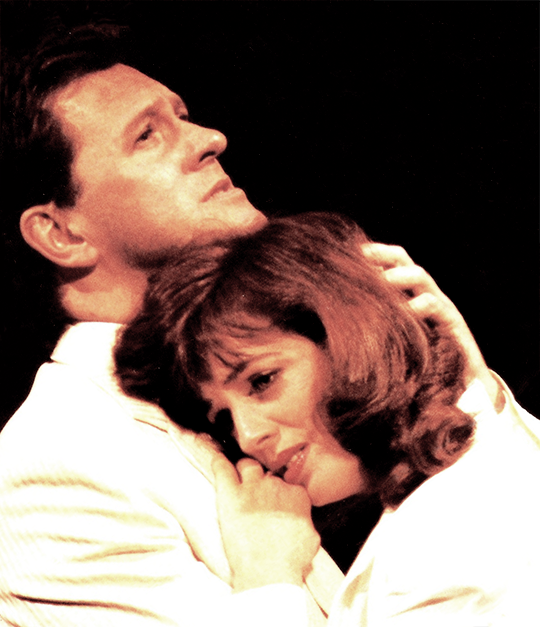

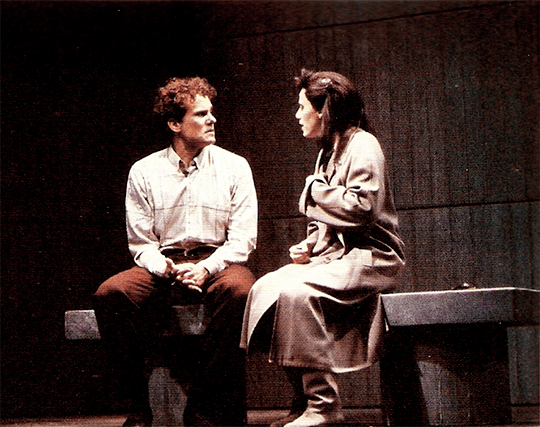





Though my heart is breaking I'd give the world for that moment with you When we thought we knew That our love would last But the moment passed With no warning, far too fast
currentlycryingaboutlancelot // Chess - West End (Tommy Körberg, Siobhán McCarthy // Richard Siken, War of the Foxes // Chess - Broadway (David Carroll, Judy Kuhn) // Nikki Giovanni, Mirrors // Chess - Long Beach Civic Light Opera (Robert Yacko, Jodi Benson) // lostcap // Chess - Stockholm (Tommy Körberg, Helen Sjöholm) // starpeace
#Chess#Chess the musical#Flonatoly#Florence Vassy#Anatoly Sergievsky#Tommy Korberg#Tommy Körberg#Siobhán McCarthy#Siobhan McCarthy#David Carroll#Judy Kuhn#Robert Yacko#Jodi Benson#Helen Sjoholm#Helen Sjöholm#chessedit#chessthemusicaledit#florencevassyedit#anatolysergievskyedit#broadwayedit#musicaledit#pureanonedits#theateredit#web weaving#quotes#words#HELLO I HAVE HAD A MOMENT OF MADNESS#long post
86 notes
·
View notes
Text

#florence and the machine#florence + the machine#florence welch#fatm#instagram#florence#florence and the machine fan club#facebook#tommy dorfman#kelsey lu#flowers
24 notes
·
View notes
Text
Time Machine: July 17, 2019 - London

Florence was captured on camera by @tommy.dorfman in front of @peggyporschenofficial in Belgravia (carrying their take-away box as well).

She's wearing a vintage 1970s Ossie Clark for Radley green pleated crepe dress from @turnervintage (similar style pictured). It features a satin yoke, a plunging neckline, a waist tie at the back and fluted sleeves. You may recognize this dress from her @billboard shoot in 2018.

Flo finished the look with a @gucci Pre-Fall 2019 GG Marmont large raffia tote bag...

...numerous of @gucci rings: a single and triple Ouroboros ring (left hand, middle and little finger), a Le Marché Des Merveilles tiger and carp tail ring (left hand, index finger) and a Le Marché Des Merveilles studded ring (right hand, ring finger). The latter is available in different variations - can't really tell which one Florence is wearing here, but the pink opal version is pictured.




The antique gold and diamond horseshoe motif locket by @tiffanyandco circa 1900 is from @plattboutiquejewelry.

#florence welch#florence and the machine#time machine#instagram#tommy dorfman#london#peggy porschen#vintage#turner vintage#ossie clark#gucci#gucci jewelry#antique jewelry#platt boutique#platt boutique jewelry#what is florence wearing
20 notes
·
View notes
Text
actors who were born to act and what I think about them
Cillian Murphy : GOD he's such a phenomenal actor. From Watching the Detectives (with Lucy Liu) to the Dark Knight Trilogy to Peaky Blinders (and Oppenheimer ofc), Cillian is able to embody every character that he plays. His Oppenheimer performance blew me away, and his ability to play morally grey and complex characters is unparalleled. On top of that, he's also just a very humble and down-to-earth human being and its incredibly admirable. I also love his almost naïve point of view when it comes to modern day slang...(what's a meme?) its adorable.
Eddie Redmayne: As a Fantastic Beasts fanatic, I absolutely adore Eddie Redmayne. He IS Newt Scamander in a different font and no one can convince me otherwise. He doesn't seem to be as well-known as other actors but his performances still leave me wanting more. Eddie also plays Stephen Hawking in The Theory of Everything and James in The Aeronauts (and his co-stat being Felicity Jones in both movies! But that's for another day). These two movies stole my heart honestly and they make me feel whole but also empty every time I watch them again. Now that I think about it, Eddie is probably most well known buy his part in Les Mis, but I personally don't know much about that. The fact that he was an art history major makes it so much better! Anyway, Eddie is also a very down-to-earth and humble person, and I love his attitude when he interacts with fans.
Sam Claflin: Once I dipped my toe into The Hunger Games fanbase/arena, there was no turning back. Sam Claflin, playing Finnick Odair, the complex pretty boy, really peaked my interest when it came to his acting range. And oh boy was the rabbit hole endless. Sam's performances in the movie adaptations Love, Rosie and You Before Me were devastatingly beautiful in the most gut-wrenching way. His role in playing Mycroft in Enola Holmes was amusing but also incredible when alongside Henry Cavill and Millie Bobby Brown (That trio will forever be legendary in my opinion but that's for another day as well). Anyway, I also watched a trailer (can't seem to remember the name of the movie), but in it, Sam was playing a psycho murderer, and to me it really showcases his range of acting abilities.. I won't say Sam Claflin is one of those actors who can play all types of characters, but there is an element in his performances that are really compelling, and draw the audience in. Just, in the way he breathes and talks (and the way that he is almost always cast to play an American and has to hide his accent) makes him a very eye-catching actor. He's also very funny irl.
Florence Pugh: I'm adding Florence Pugh because how can I not. She's in so many phenomenally directed movies, and she's incredible at micro-expressions that I can't help myself. Her performance in Don't Worry Darling, Black Widow, Little Women, Hawkeye, and Oppenheimer completely blew me away. Her little pout also changes so much about the scene once she pulls it out. Outside of her acting career, I also admire her attitude towards the industry. From refusing to go on diets to being willing to be intimate onscreen, Florence Pugh has balanced her personal opinions and her work so well. Her accent work is also phenomenal.
#oppenheimer#oppenbarbie#cillian murphy#tommy shelby#peaky blinders#thomas shelby#newt scamander#fantastic beasts#eddie redmayne#les mis#harry potter#the hunger games#sam claflin#finnick odair#actor#hollywood#dark knight#florence pugh#marvel#little women#dont worry darling#ranting#tw ed rant#rants#rant post#rambles#ramblings
23 notes
·
View notes
Text
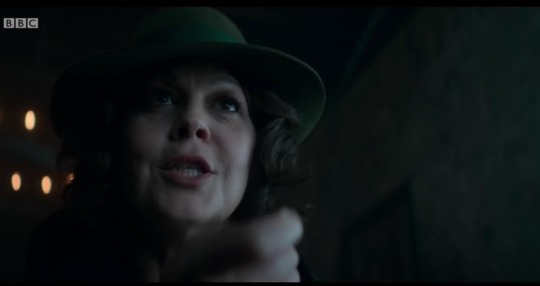

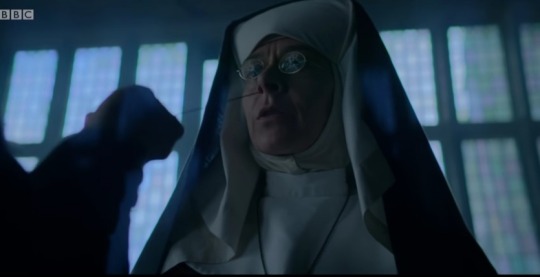
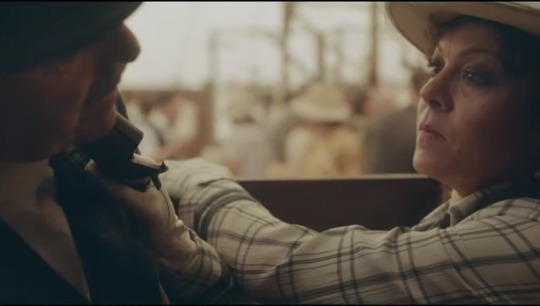

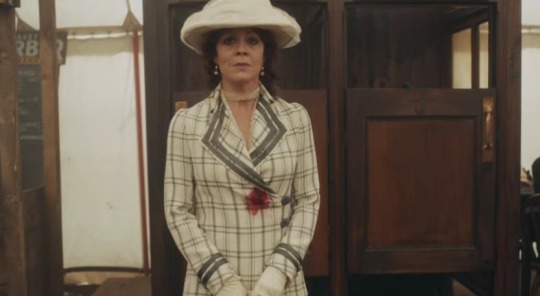




Heaven is Here by Florence + the machine
Polly Gray - Peaky Blinders (2013-2022)
#Heaven is Here#florence welch#florence + the machine#florence and the machine#Dance fever#Polly Gray#polly shelby#peaky blinders#peaky fucking blinders#thomas shelby#tommy shelby#helen mccrory#cillian murphy#by order of the peaky blinders#my txt
33 notes
·
View notes
Text
THEY'RE COMING!!!!
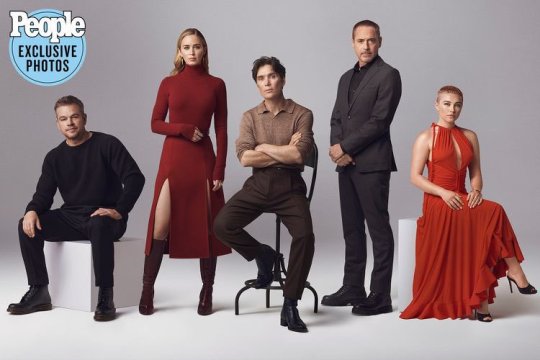
#cillian murphy#emily blunt#florence pugh#robert downey junior#oppenheimer#barbenheimer#tommy Shelby#peaky blinders#Oppenheimer promo#matt damon#rami malek#christoper nolan#movies 2023#movies
18 notes
·
View notes
Text
youtube
Synopsis: Two friends, Frank and Charlie, have been fooling around with no label until they both start to get jealous and realize they have feelings for each other.
#sebastian stan#florence pugh#mine#sebastianstanedit#sebstanedit#florencepughedit#endings beginnings#the little drummer girl#midsommar#monday#don't worry darling#marcella#pam & tommy#my videos#youtube#my edits#edit#marvel men#marvel women#au verse#crossover#my video
10 notes
·
View notes
Note
i’m a huge fan of Jenna as Flora and in that spirit can i get little glimpse of the relationship between her and Tommy. Diane is the first daughter but Flora strikes me as a more quiet one and kinda reserved like Tommy.
Can there be like a moment now that Diane is out of the house (chasing her man) and Charlie is out trying to forge his own path Flora kinda feels some loneliness. Or she’s really scared due to WW2 fearmongering and asks her daddy (who works in the government) if their family is gonna be okay?
I kinda love in the show how Tommy let his guard down with ruby (rip OG) and showed her a side of him he doesn’t really show anyone not even lizzy. He was truly relaxed and jovial when he had her in his arms
Safe
Some Florence and Tommy fluff, sprinkled with angst and mild spoilers for Tie your heart to mine
Gif by @shxrpeava
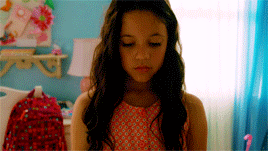
1940
When Florence turns ten, war is declared on Germany and its allies.
Charlie leaves and trains as a pilot, Diane rushes to marry Tom because neither want to die without knowing what could have been after nearly he almost died in the Battle of River Plate, Gabe begins joining a boot camp after school to do his part and Flora finds herself all alone in Arrow House most of the time.
At school they are taught what to do in case the enemy attacks, how to provide basic first aid and that Germans will come like they do in her father’s nightmares.
Daddy is hardly home, mami is busy making sure everyone is prepared and eventually everyone is told to come here and hunker down because it won’t be long until the bombings start.
And yet, having the house filled to the brim has her feeling lonely.
Doesn’t help everyone whispers about what the Nazis are doing to their people.
Her mother mutters a curse to them , the Germans, especially one called Mengel, when she is told by Esme about what the doctors are doing to Romany they capture.
Florence Eleanor Shelby is scared.
Scared that Tom died in Dunkirk, scared that Charlie gets captured by the nazis and he gets tortured for being Rom, scared that the German bombers will kill them here.
So she goes to the one who can tell her the truth about it.
Not mami who lies and tells her she sees the war coming to an end and them defeating the nazis and their allies.
Flora goes to her father, the man who is second to the leader of his party and part of the Prime Minister’s inner circle.
He’s working, or hiding from everyone, in his office.
She is careful to not make much noise and yet he knows its her even without looking up from his papers until she is tugging at his sleeve for his attention.
He stops working and lifts her on his lap with a groan.
“Getting too big for this, sweetheart.” He said into her dark hair.
There is something about her dad that always makes her feel safe.
Between the smell of cigarettes, the mint he chews to hide it and the cologne mom makes for him in the stillroom, Florence feels safe.
Even when he isn’t here, she just comes into his office and wears his coat to pretend he is there with her.
It makes her feel safe, just like mami feels safe when she hides in her parlor from everyone and wears daddy’s shirts to sleep.
“Daddy, are we going to die?” she asks once she is comfortable.
“I don’t know, sweetheart.” He answered honestly. “But your mum sees Charlie coming home and Dia being happy with her Tom, you and Gabe growing up in a world after the war, so maybe if we work hard enough, we can have that future.”
“Do you really think so?” she asks knowing sometimes mami’s visions don’t come true.
“Yeah, I think so. Your mom’s never wrong.” He said before kissing the top of her head.
“Can I stay here with you?” she asks hoping he says yes.
“Don’t you want to play with your cousins, Flora?” he asks knowing why she’d run here.
“They’re too loud.” She answers and he laughs quietly.
They didn’t like too much noise, house feels too small and sometimes they just need to go outside where no one can find them.
“I’ll make you a deal, Florence, you let me finish up my work and we go to the stables once I’m done.” Her dad says and she nods in agreement.
“Can I ride Helsing with you?” she asks, dad’s favorite horse was the big black one that hates everyone except mami.
Says it reminds him of him.
“Only if you don’t tell your mother.”
#eva smith shelby#tommy shelby x oc#dad!tommy my beloved#dad!tommy#tommy and florence#florence shelby#diane shelby x tom bennett#tie your heart to mine fic#world on fire peaky blinders crossover#peaky blinders fanfiction
45 notes
·
View notes
Text

Chapter 1 Chapter 2 Chapter 3 Chapter 4
Chapter 5 Chapter 6 Chapter 7

Fearless journalist Florence Fletcher is on a mission to expose the Peaky Blinders, but her relentless pursuit pits her against the dangerous and captivating John Shelby.
When a greater threat looms, they must join forces, turning enemies into uneasy allies. Amidst the chaos and intrigue, sparks fly and forbidden passion ignites.
Can they survive the shadows of Birmingham's underworld and find love, or will their secrets destroy them?

#peaky blinders#peaky blinder fanfic#peaky blinders fanfiction#john shelby#john shelby fanfic#john shelby x oc#behind enemy lines#florence fletcher#enemies to lovers#ao3#ao3 fanfic#peaky blinders oc#tommy shelby
56 notes
·
View notes
Text
'If Peaky Blinders made the Irish actor a household name, will Christopher Nolan’s nuclear blockbuster send him into the stratosphere? He talks about extreme weight loss, hating school and why his next character won’t be a smoker.
Cillian Murphy is struggling with what he can and can’t say about his title role in Oppenheimer, the latest Christopher Nolan epic, such is the secrecy surrounding this film. Murphy is under “strict instructions” not to talk about the content. Which is awkward when you’ve flown to his home in Ireland to interview him specifically about playing the physicist who oversaw the creation of the atomic bomb, later detonated over Hiroshima and Nagasaki. It’s not clear who issued these instructions. Nolan? The studio? The US government? All I know is that as well as Murphy being gagged by hefty NDAs, I am not allowed to see it (“bit unfortunate”, he concedes).
So, yes, here we sit in an empty upstairs room of a restaurant near his house in Monkstown, Dublin, working out how to do this. The room is dark, the sun shining through a solitary Velux lighting his features like a Géricault. The only background noise is the low hum of a wine refrigerator. Murphy loathes interviews, looks visibly tortured at points. But he relaxes when I ask if he’s pleased with Oppenheimer. “I am, yeah,” he says. “I don’t like watching myself – it’s like, ‘Oh, fucking hell’ – but it’s an extraordinary piece of work. Very provocative and powerful. It feels sometimes like a biopic, sometimes like a thriller, sometimes like a horror. It’s going to knock people out,” he adds. “What [Nolan] does with film, it fucks you up a little bit.”
Nolan wouldn’t disagree. The director recently told Wired magazine that some of those who’d seen it were left “absolutely devastated … they can’t speak”. Which sounds like a bad thing, but is related perhaps to the thought of the 214,000 Japanese people, overwhelmingly civilians, who lost their lives when the bombs were dropped. Kai Bird, the historian who co-authored American Prometheus, the 2008 biography of J Robert Oppenheimer upon which the film is based, said he was still “emotionally recovering” from seeing the film, clarifying that it was “a stunning artistic achievement”.
Murphy’s portrayal is said to be astonishing (“Oscar-worthy” is the buzz). This is not unbelievable. While Hollywood might not know him as a leading man, this quietly intense actor has long been celebrated in the UK and Ireland, most notably for his nine-year stint as Tommy Shelby in Peaky Blinders. When he first appeared on our screens, looking like a renaissance painting of Saint Sebastian – chiselled head contrasting with translucent blue eyes – it was impossible not to be distracted. He appeared first on stage in Enda Walsh’s Disco Pigs, then the screen adaptation. Then 28 Days Later; Intermission; Ken Loach’s The Wind That Shakes the Barley. Previous collaborations with Nolan include the Dark Knight trilogy, Inception and Dunkirk, “significant milestones in my career,” he says, adding that Nolan “might be the perfect director”.
It was Nolan’s wife, the producer Emma Thomas, who called Murphy one afternoon at the home he shares with his wife, artist Yvonne McGuinness, and two teenage sons. Nolan doesn’t actually have a telephone, or an email, or computer for that matter: “He’s the most analogue individual you could possibly encounter.” So, Emma said Chris would like a word and passed the receiver, then the director came on the line. “Cillian, I’d love you to play the lead in this new thing,” he said. Murphy tries to recreate his response to this news. “I was lost for words. But thrilled. Like beyond thrilled.” It is characteristic of Murphy that the modulation of his voice barely changes as he expresses this. He was so stunned, he had to sit down. “Your mind explodes.”
In the absence of the three-hour feature, I scrutinise Oppenheimer’s three-minute trailer. It’s a rush of snapshots against the crackling of a Geiger counter. There’s Murphy, short back and sides, lifting 1940s eye goggles; blue and red atoms coming at him fast; orange light; white light; blackout; silence. Massive explosion against the backdrop of space. Overlaid is Murphy’s narration, “We’re in a race against the Nazis / and I know what it means / if the Nazis have a bomb.” There’s Matt Damon looking porky as army general Leslie Groves, director of the Manhattan Project: “They have a 12-month head start.” Murphy, pointing with cigarette: “18.”
He has put back on some of the weight he lost for the part, I’m relieved to see; his skin isn’t quite so taut over his skull and there are freckles over those eagle-wing cheekbones. He was determined to nail the scientist’s silhouette “with the porkpie hat and the pipe”, testing himself to see how little he could eat. “You become competitive with yourself a little bit which is not healthy. I don’t advise it.” He won’t say how many kilograms he lost, or what food the nutritionist told him to cut out. NDA? “Ach, no. I don’t want it to be, ‘Cillian lost x weight for the part’.”
Then again, the hurtling speed at which Nolan worked, crisscrossing the US, made it easy to skip meals. Murphy began to forget about food in the same way he began to forget about sleep. “It’s like you’re on this fucking train that’s just bombing. It’s bang, bang, bang, bang. You sleep for a few hours, get up, bang it again. I was running on crazy energy; I went over a threshold to where I was not worrying about food or anything. I was so in it, a state of hyper …” he gropes for the word, “hyper something. But it was good because the character was like that. He never ate.” Oppenheimer subsisted on little more than Chesterfield cigarettes and double-strength martinis, rims dipped in lime. “Cigarettes and pipes. He would alternate between the two. That’s what did for him in the end,” Murphy adds, a nod to the scientist’s death from cancer in 1967. “I’ve smoked so many fake cigarettes for Peaky and this. My next character will not be a smoker. They can’t be good for you. Even herbal cigarettes have health warnings now.”
I raise method acting and Murphy tilts his head and frowns. “Method acting is a sort of … No,” he says, firm but with a half smile. Oppenheimer had many defining characteristics, not least walking on the balls of his feet and a vocal tic that sounded like nim-nim-nim, but Murphy didn’t want to do an impression. Nolan was obsessed with the Brillo-texture hair, so they spent “a long time working on hair”. And the voice. The real question for Murphy was what combination – ambition, madness, delusion, deep hatred of the Nazi regime? – allowed this theoretical physicist to agree to an experiment he knew could obliterate humankind. “He was dancing between the raindrops morally. He was complex, contradictory, polymathic; incredibly attractive intellectually and charismatic, but,” he decides, “ultimately unknowable.
“Listen, it’s not like a spoiler,” he says, checking himself before he leans in, “but there are incidents in his early life that were quite worrying; very erratic.” They are in the film and the book, he steers. I suspect he is referring to Oppenheimer’s postgrad at Cambridge in 1926, when he placed a poisoned apple on the desk of a tutor towards whom he harboured complicated feelings of inadequacy and jealousy. Arguably, this was attempted murder. But Oppenheimer’s rich New York parents rushed in to bundle him into psychoanalysis. He was diagnosed with “dementia praecox”, a term describing symptoms associated with schizophrenia.
Murphy likes these complex characters; they’re his meat. People that don’t necessarily follow the – yawn – traditional transformative arc of storytelling. Not villains, exactly (although he’s played a few, including Scarecrow in Dark Knight and Jackson Rippner in Red Eye): “Villains are good if they’re well written, but if it’s one note or a trope, then they are dull.” He likes a script to stretch leisurely into all corners of the human condition, “all the shades”. At the same time, you have to understand his exceptional ability to portray interiority, physically manifesting intense human emotion without a word, radiating fierce, consuming energy. Which he does today, actually, when I stray off track.
Although Nolan is usually, shall we say, antiseptic in his approach to romance, Oppenheimer represents a significant shift. He told Wired the love story aspect “is as strong as I’ve ever done”. It features prolonged full nudity for Murphy and Florence Pugh, who plays Oppenheimer’s ex-fiancee, as well as sex, and there are complicated scenes with Emily Blunt, who plays his wife, “that were pretty heavy”. Murphy turns coy: “I’m under strict instructions not to give away anything.”
He asks if I’ve heard of chemistry tests. “They put two actors in a room to see if there’s any spark, and have all the producers and director at a table watching. I don’t know what metric they use, and it seems so outrageously silly, but sometimes you get a chemistry and nobody knows why.” This is a roundabout way of saying his scenes with Blunt and Pugh conjure this magic. His established bond with Blunt (they co-starred in A Quiet Place II) meant “the audience gets something for free”, he says. “You can be immediately vulnerable and open, and try stuff. There were moments where I remember saying, ‘I couldn’t have done that if it wasn’t with you.’”
Murphy, 47, grew up the eldest of four in Cork. His father was a civil servant, his mother a French teacher. They were a middle-class family, musical; his father “can pick up any instrument”, his brother played piano, and they regularly got stuck into “traditional Irish sessions”. Bookshelves were stuffed with literature, the radio often on, the “shitty” TV set not so much. Home life was busy but his parents taught him French and Irish, and sent him to an all-boys academic, rugby-playing private school. “I got all the education” he says, drily.
The story of how much he disliked the Presentation Brothers College, the hard-drinking masculine emphasis, how he found solace playing guitar in a band, is much rehearsed and he says today he doesn’t want “to slag the school off. I hear it’s great now.” Something about this experience seems nonetheless unsettling. He had one friend, who is still his best friend, “so I wasn’t, like, an outcast”. He played rugby for the first couple of years, but abandoned it “because everyone was all of a sudden towering over me.” Was it an unhappy time? He shifts. “It was OK. I was a bit of a messer, like I’d get in trouble and say nothing. It wasn’t the ideal school for me.”
He enrolled in and dropped out of a law degree at University College Cork, which created some friction with his parents (when I ask if his own sons will go to university in Dublin, he says, “Whatever they want”). He continued with the band, his first creative love but the one that got away. When they were offered a contract with Acid Jazz records, he turned it down for a number of reasons, he says, crucially that he didn’t feel good enough. He still writes and plays at home but, no, you won’t be hearing any of his recordings, ever, he says.
It’s a funny thing talking to Murphy. He’s at once garrulous (on the craft, or literature, or ideas) and reticent (pretty much anything else). I sense in previous interviews that he skates over issues close to his heart – such as the expression of emotion in Ireland and the need to teach empathy in schools. But when I try to drill in to these topics, get to the root, he clams shut, emitting energy like a nuclear reactor.
Later, in a different context, he will tell me a truth: “I’m stubborn and lacking in confidence, which is a terrible combination. I don’t want to put anything out that I don’t think is excellent.” But he clearly hates the pantomime of publicity, asking why I am returning to certain topics and repeating lines I’ve read elsewhere. I can almost see him at home with its views towards the Irish Sea, complaining to his wife as they tuck into supper: “Another one, asking the same fucking questions.”
If he could get out of going to Cannes, of standing on red carpets, dressed as is his habit for a funeral, hair shellacked, hands in pockets; if he could turn his back on the coloured-foam mics thrust in his face, he would. He really would. No, it dawns on him now, there’s something even worse than the red carpet; there’s the talkshow rounds. The very word “talkshow” comes out of him like a pain from his ribcage, as if the parcelling out of amuse-bouche anecdotes, offering them up to the forced laughter of that false god of show business, the studio audience, is in itself the most cheapening experience known to mankind.
“I do them because you’re contractually obliged to. I just endure them. I’ve always found it difficult. I’ve said this so many, many times.” Then there’s the double wince of realising that, yes, he’s done it again. He’s laid into the industry that feeds him. His hands raise slowly in surrender. “I want to just caveat this by saying, I’m so privileged. I’m so happy to be doing what I love. I’m really lucky. But I don’t enjoy the personality side of being an actor. I don’t understand why I should be entertaining and scintillating on a talkshow. I don’t know why all of a sudden that’s expected of me. Why?”
There’s an awkward silence. I say that he reminds me of Naomi Osaka, the tennis player who refused to talk to journalists after the French Open in 2021. He says he feels “100%” sympathy with her, “because why should she have to perform?” Then he relents. “But I get it. I get it’s a kind of ecosystem where the film feeds the publicity which feeds the talkshows which goes back and feeds the film, so, like, that’s how it works. I suppose I’m just not good at it. At interviews, at this stuff,” he gestures at me. He says after he leaves me today he’ll be going down the stairs thinking of all the things he’s said and worrying it’s come across all wrong. “Do you know what Sam Beckett said? ‘I have no views to inter.’ I love that. That should be the interview.”
We return to his art, the tension falls away and he’s back to his charming self, charged air evaporating. Since Oppenheimer, he’s also wrapped Small Things Like These, an adaptation of Claire Keegan’s brilliant novella set in 1985 in a small Irish town on the edge of which is a convent and “laundry”. Murphy is a huge fan of Keegan. He remembers reading her 2010 novel Foster on a train and having to pull his hoodie over his face because he was crying so hard. Anyway, he’d wanted to work with the Peaky Blinders director Tim Mielants and they were throwing ideas around in his sitting room when Murphy’s wife suggested Small Things. “No, there’s no way,” Murphy said. “That’s going to be gone already.” But when he called the agent, he found it was available. “I went, ‘No, you’ve got to be fucking kidding.’” Murphy pitched the idea to Matt Damon, who has set up a studio with Ben Affleck. “From there it all just happened really quickly.”
Murphy plays Bill Furlong who, funnily enough, is a man of few words. Keegan’s light-touch writing is everything he loves in art – the sense that you are not being bashed over the head by an idea. That’s how he tries to act, he adds. “I’m always trying to cut lines in scenes, because I feel like you can transmit it. Like when you see a person on a train thinking, or driving a car, and you are purely observing someone and feeling the energy that is vibrating from them. That’s the sort of acting I love. In a lot of film and television, they want to cut those bits to go to the action. I like films that pose the big questions and then leave it to the audience.” Perhaps this is at the heart of his reticence in interviews? That he doesn’t feel the need to explain.
He still finds it “nuts” that the last of the Magdalene laundries closed in 1996, that it was illegal to buy condoms in Ireland until 1985, that divorce was made legal only in 1996. He remembers vividly thousands of people still going to see moving statues in Cork when he was growing up. “Crazy. But, like, how far the country has come since then, we’re so socially advanced now compared with where we were. But you must look back. And art is a better way of doing that than reading all these reports [into the laundries].” (Afterwards, he emails me: “The nation is actually dealing with an unresolved collective trauma. Who knows how long this will take to heal, but I feel strongly that art, film and literature can help with that process. It’s a kinder and gentler sort of therapy. I hope that our movie can help with that in its own little way.”)
Because he’s a nice man, because he doesn’t want me to feel bad about our encounter, and because he’s generous and hospitable, Murphy finishes by telling me some of the best places to visit in Ireland. He and his family are staying here for the summer. They’ve had it with air travel and his home town of Cork is only a couple of hours away. He supplies me with other recommendations: a great book he’s just read, Brian, by Jeremy Cooper, oh, and there’s the Francis Bacon studio exhibition I should catch on my way out.
But before I go, what has he learned from playing Oppenheimer? Foremost, he says, that scientists think differently. He knew this already from playing physicist Robert Capa in Danny Boyle’s Sunshine (2007) and hanging out in Cern, home of the Large Hadron Collider in Geneva, for research. “I had dinner with all these geniuses. I’ll never understand quantum mechanics, but I was interested in what science does to their perspective.” He sought their opinions on subjects that matter – love, politics, our place in the universe, “infinity, or whatever the fuck. Because they have a completely different way of taking in information than we do. I remember one scientist saying, ‘I don’t believe in love. It’s a biological phenomenon, the exchange of hormones between the female and the male. That’s all. Love is a nonsense.’” Murphy taps the table with his hand. “I couldn’t go along with that, obviously.”
#Cillian Murphy#Oppenheimer#Christopher Nolan#Emily Blunt#Florence Pugh#Danny Boyle#Sunshine#Brian by Jeremy Cooper#Small Things Like These#Claire Keegan#A Quiet Place II#Peaky Blinders#Tommy Shelby#Disco Pigs#28 Days Later#Intermission#The Wind That Shakes The Barley#The Dark Knight Trilogy#Inception#Dunkirk#Scarecrow#Jackson Rippner#Red Eye#Bill Furlong
179 notes
·
View notes
Text






“lauretta with another woman would make everyone but her worse actually.”
lilth - halsey, close to you - gracie abrams, dream girl evil - florence + the machine, lauretta ghiraldini - @tankgotstuckinthecircusgate, genuinely cannot find this source i’m so sorry, lilth - halsey, caption is a linked post by @mwwktn
#you may be too busy to post more about it but i am NOT#can’t wait for you to look at this and tell me ur thoughts himeno my beloved mutual himeno#toxic & doomed yuri <33#i did this instead of writing tommy/lucas. like ur posts have me obsessed truly#lauretta ghiraldini#mafia 2#web weave#word webs#poetry#quotes#post: poetry#halsey#lilth halsey#florence and the machine#fatm#gracie abrams
25 notes
·
View notes
Text
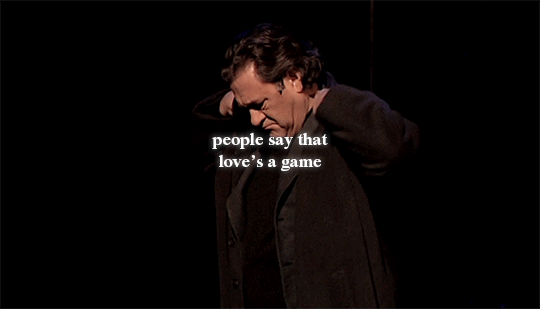
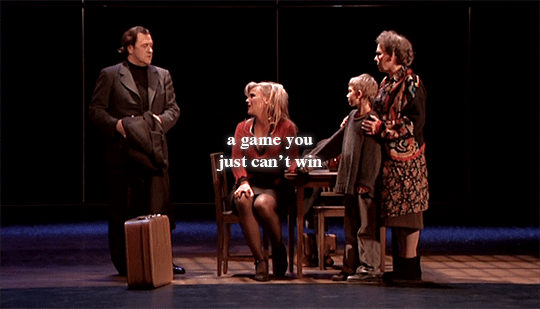
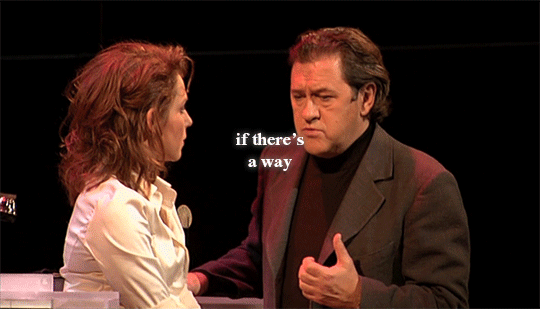
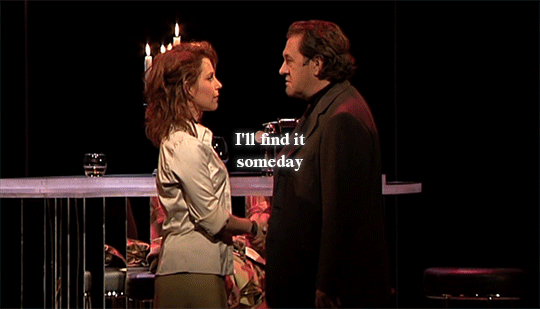
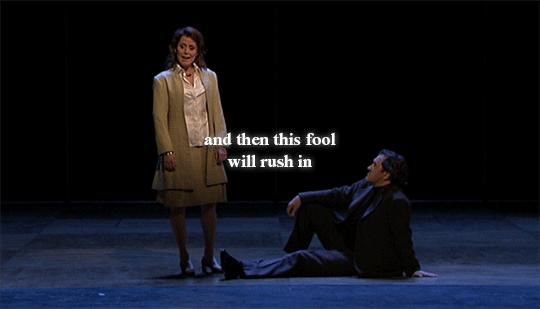
Put your head on my shoulder Whisper in my ear, baby Words I want to hear Tell me, tell me that you love me, too
#Chess#Chess the musical#Anatoly Sergievsky#Florence Vassy#chess på svenska#chess pa svenska#Flonatoly#Tommy Korberg#Tommy Körberg#Helen Sjöholm#Helen Sjoholm#chessedit#chessthemusicaledit#anatolysergievskyedit#florencevassyedit#pureanonedits#theateredit#musicaledit#Having FEELINGS about Anatoly and how he approaches love lads.
28 notes
·
View notes